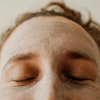La Roche-Posay
Dermatologist-backed skincare

La Roche-Posay's Sustainability Rating:
Fair
La Roche-Posay is rated Fair - it has a lack of reporting and initiatives at the brand-level, but its parent company has made progress overall.
La Roche-Posay's parent company uses nearly 100% renewable energy in its production, reports on its emissions measurement, and has SBTi-approved emissions reduction targets. La Roche-Posay offers lower-waste bulk refills for some products, and its parent company has made efforts to reduce packaging plastic use and waste across all owned brands and reports on its progress.
However, La Roche-Posay doesn't make any ingredient commitments at the brand-level, and it still uses ingredients that pose a threat to the environment, including parabens, microplastics, harmful suncare ingredients, and other petrochemical-based ingredients. La Roche-Posay still appears to rely primarily on unidentified plastic, it doesn't have a takeback program, and doesn't provide any recycling guidance for customers to help avoid landfill waste.
La Roche-Posay is owned by L'Oreal Groupe.
Ingredients
La Roche-Posay doesn't make any ingredient commitments at the brand-level. Its parent company makes some commitments across all owned brands, including to eliminate phthalates and non-RSPO palm oil. Choice of ingredients is a strong determinant of environmental impact, and La Roche-Posay still uses many ingredients that pose a significant threat to the climate, including parabens, microplastics, harmful suncare ingredients, and other petrochemical-based ingredients. Its products incorporate bio-based ingredients. It carries products that have certifications from Cradle to Cradle, though it doesn't clearly identify these on its site.
Containers & Packaging
La Roche-Posay shares some efforts to reduce virgin plastic in its product containers, but its parent company's most recent update shows slow progress towards its overall goals. La Roche-Posay appears to use primarily plastic packaging, which greatly increases waste and emissions, though some of the plastic is identified as majority-recycled. It's unclear if La Roche-Posay's goal of 100% recycled plastic by 2030 is separate from its parent company's packaging goals.
Energy & Water Use
La Roche-Posay's parent company, L'Oreal Groupe, shares information on its overall energy strategy. It uses a majority of renewable energy to power its production sites and corporate offices, and has targets for expanding its use of renewable energy to 100% by 2025. L'Oreal Groupe implements energy efficiency measures in its production sites and corporate offices. It implements water conservation measures, including working to increase its water recycling and wastewater quality. La Roche-Posay has a global production span, which is standard for the industry.
Refill & Reuse
La Roche-Posay offers lower-waste bulk refill options for a few products to encourage reuse and reduce waste. However, it doesn't identify any recycling guidelines for its product containers to help reduce landfill waste at end of life. La Roche-Posay doesn't offer any take back programs for its product containers.
Slow Cleaning
La Roche-Posay doesn't frequently release seasonal or limited edition products, which helps prevent production of excess inventory.
Marketing
Commons is still evaluating this brand's marketing emails.
Transparency & Reporting
La Roche-Posay has a prominent sustainability page with limited high-level details on its climate strategy. Its parent company, L'Oreal Groupe, publishes a detailed annual report with a clear, impact-driven strategy and progress reporting. Its last annual report was published in 2024. La Roche-Posay shares a complete list of ingredients used in its products, on a per product basis.
Emissions Tracking
La Roche-Posay's parent company, L'Oreal Groupe, internally measures and publicly reports its company-level emissions in partnership with, or with auditing from, a third party. It includes a breakdown by scope and shares select product-level LCAs. The last reporting period was 2024. In its most recent update, its estimated emissions footprint was 8,173,101 tons CO2e.
Targets & Offsets
La Roche-Posay's parent company, L'Oreal Groupe, has SBTi-approved emissions reduction targets for the medium-term (5-10 years), long-term (10+ years). It has reported on its progress within the past year, and is on track for some of its targets, but is far off track for its scope 3 target. Commons couldn't find evidence that this brand offsets any emissions.
Supply Chain & Labor
La Roche-Posay's parent company, L'Oreal Groupe, publishes limited information about its supply chain partners and is working on tracing some of its supply chain. L'Oreal Groupe publicly shares a supplier code of conduct, which prohibits forced labor, prohibits child labor, establishes grievance mechanisms, and disallows unauthorized subcontracting. Its code of conduct doesn't ensure the right to collective bargaining where not allowed by law, ensure a living wage, or include environmental clauses. It has a stated policy of regularly auditing its supply chain partners, which can mitigate human and environmental risks.
Advocacy
La Roche-Posay's parent company, L'Oreal Groupe, doesn't openly disclose its climate-obstructive trade association memberships. L'Oreal Groupe is member of 1 large climate-obstructive trade association: Personal Care Products Council, and belongs to some pro-climate advocacy orgs, including: Ceres. It employs state lobbyists with few fossil fuel aligned clients. It didn't donate more than $100k to climate-obstructive candidates or PACs from 2018-2024.
Our ratings are based on a scale from 1 (harmful) to 5 (best). How we rate →
View sources
What did you think about this rating?
Share your feedback →

Get Rewards
Earn for sustainable purchases
Commons rewards you for sustainable purchases from all our Top Rated brands, plus thousands of everyday purchases — from thrift stores to public transit.
Learn more about rewards ->






